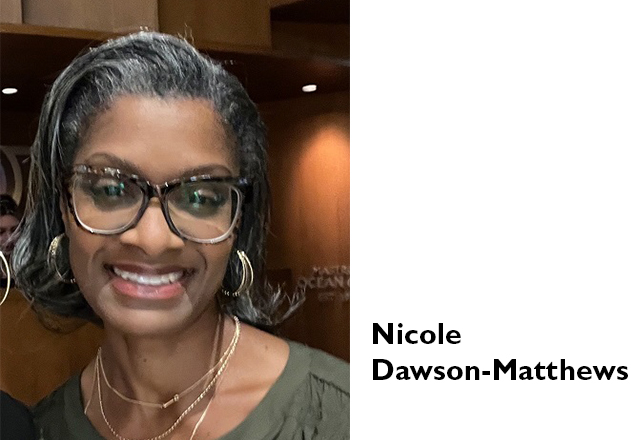
Nicole Dawson-Matthews
Medical Assistant, Johns Hopkins Medicine Cardiology at Sibley
Nicole Dawson-Matthews is no stranger to helping those in need. She spent years during her youth participating in the Salvation Army’s red kettle campaign with her father — a tradition she later shared with her daughter.
As an adult, during the height of the COVID-19 pandemic, the Silver Spring, Maryland, native could be found administering the vaccine at many clinics throughout Maryland and Washington, D.C. Some of this time was during the workday, but most of it was in the evenings and on weekends.
“Considering all that the world had seen up to that point — the hospitalizations and deaths associated with COVID were unbelievable,” she says. “Being able to help out in any way I could wasn’t even a question.”
Among her Johns Hopkins Community Physicians (JHCP) team members, she is known for going above and beyond in support of patient care. It’s what her colleagues admire most about her. “She never hesitated to step in and was eager to administer the vaccine at the COVID clinics,” wrote Marina Paul, practice administrator, in her nomination of Dawson-Matthews for the Martin Luther King Jr. Award for Community Service.
Dawson-Matthews also volunteers with So Others Might Eat, an interfaith, community-based organization in Washington that helps people who are poor and homeless. There too, she combines her strong work ethic with a desire to create opportunities for others.
“It is our responsibility to serve with an open heart,” Dawson-Matthews says, “and not expect anything in return.”
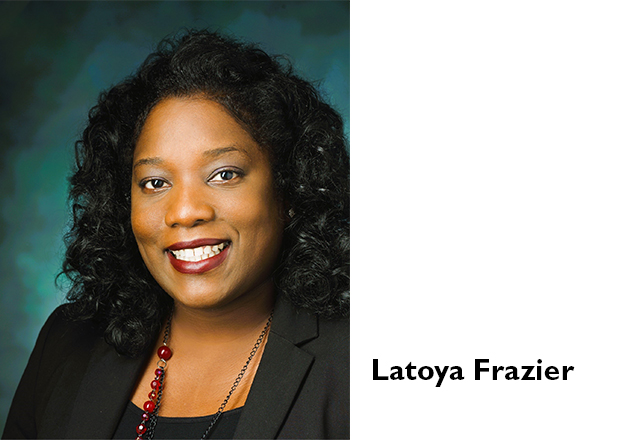
Latoya Frazier
Compliance Coordinator — Human Resources
Intrastaff, Johns Hopkins Health System
As a teen growing up in East Baltimore, Latoya Frazier knew firsthand some of the challenges young people encountered in her community — drugs, and poverty.
Raised in a two-parent family with three siblings, her stable family upbringing helped her overcome the odds when she became a mother at age 16. Frazier says she told herself, “I cannot let this defeat me. I must show them I can do this.” She later realized that what began as fierce determination to prove herself to others was motivation for her too. “That’s when I started to grow.”
It is a mindset that put her on the path to success. Five years ago, Frazier started a nonprofit organization, Wilcome Human Services, that provides transitional housing, mentoring, workforce development, support services and resources for at-risk youth and young adults in York, Pennsylvania, and in Baltimore.
Wilcome (a name created from her belief that God’s will, will come) operates two transitional homes in Baltimore and partners with Baltimore City Public Schools, the departments of social services for Baltimore City and Baltimore County, and the Baltimore City Mayor’s Office of Youth Homelessness.
“It’s not something I set out to do, but I kept having these dreams [about establishing a nonprofit organization],” she says. “It gives me a chance to give something back.”
As an 18-year Johns Hopkins Health System employee and a compliance coordinator for Intrastaff, which provides temporary staffing services, Frazier’s experience in HR and her background in mental health services and working with people with disabilities all come in handy as Wilcome's executive director. So does her bachelor’s degree in management.
Wilcome is pursuing certification and training from the Maryland Developmental Disabilities Administration to address what Frazier calls “an alarming number of young people with mental health problems” who are dealing with emotional stress, trauma and death.
Now married with a grown daughter, 16-year-old twins and a grandchild, Frazier is grateful for every moment and opportunity that she and her board of directors, advisory board and staff can make a difference. She is especially proud of one young mother who came into the organization unemployed and homeless and now has a house and works for the organization
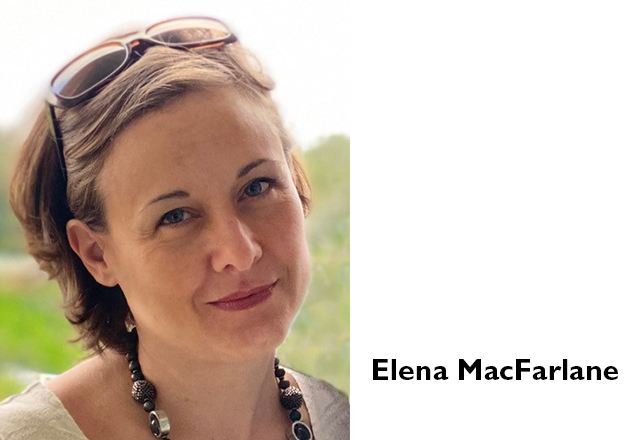
Elena MacFarlane
School of Medicine Assistant Professor, Department of Genetic Medicine
Elena MacFarlane began assisting refugee families newly arrived from Afghanistan in January 2022. Armed with a Google translator, a trunk-load of donations and a network of friends eager to offer support, the Johns Hopkins researcher shared tea with a couple and their three children and plunged into a volunteer role she finds deeply rewarding.
The assistant professor of genetic medicine has become a familiar face at the Immigrant and Refugee Outreach Center (IROC), a nonprofit organization that provides resources, education and outreach to individuals and families in Maryland, Washington, D.C., and Virginia. So far, she has helped at least 12 families that resettled in the region after evacuating from Afghanistan in 2021, and she has collected and delivered items to roughly 60 more on her way to and from her home in Washington’s Capitol Hill neighborhood.
Emily Bramel, a graduate student in MacFarlane’s lab in the Miller Research Building, is inspired by the mother of two’s efforts.
“Her volunteer assistance during weekends and any spare time during the week has included help in resume writing, job search, financial education, transportation to medical appointments and support in immigration-related matters,” Bramel wrote in her nomination of MacFarlane for a Martin Luther King Jr. Award for Community Service.
By September, MacFarlane had provided more than 30 pieces of baby care equipment, over 30 appliances, dozens of rugs and small furniture items, more than 20 bikes, 12 sewing machines, and 10 laptops and iPads that she refurbished, according to IROC.
MacFarlane came to Johns Hopkins in 2008 as a postdoctorate student to work with world renowned genetics professor Hal Dietz. While she relishes investigating Loeys-Dietz syndrome, a genetic connective tissue disorder that affects heart vessels, she says her volunteer work with refugees is a “mission of pure joy.”
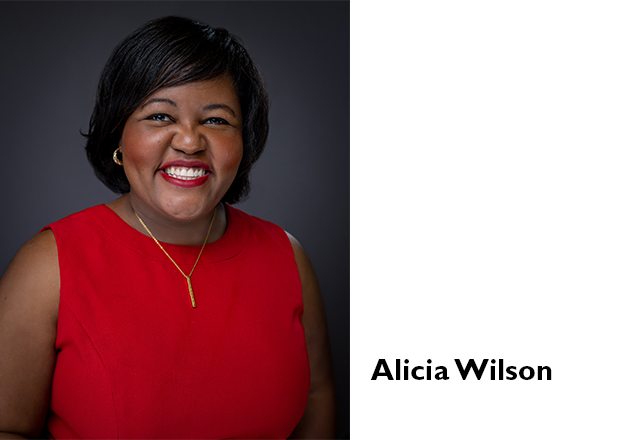
Alicia Wilson
Former vice president for economic development, Johns Hopkins University and Health System
As the COVID-19 pandemic took hold, Alicia Wilson was on the ground in Baltimore tending to crucial community needs. She helped establish the East Baltimore Food Initiative, which fed more than 7,000 residents and 2,000 families per week; she worked with the city health department to create a safe food delivery system for Spanish-speaking residents who needed to quarantine at home; she spread the word about rooms available for quarantining and she provided COVID-19 information to community youth.
Such community service is central to everything Wilson has done, whether as vice president for economic development and community partnerships at The Johns Hopkins University and the Johns Hopkins Health System, or in her personal life.
Wilson has headed Johns Hopkins’ efforts to expand its role as an anchor institution and economic engine in Baltimore in ways that benefit both Johns Hopkins and neighboring communities. In her free time, she mentors youth and serves on the boards of many local and national nonprofit organizations including the Center for Urban Families, the Open Society Institute, the Walters Art Museum and the Diverse Attorney Pipeline Program. She was the youngest person, the first woman and the first African American to be chair of the CollegeBound Foundation.
Wilson still lives in Frankford, the Northeast Baltimore neighborhood she grew up in with her parents and two brothers.
“I live with the decisions I make very closely,” she says. “When I’m talking about economic development and real estate, that’s happening in my neighborhood. When I’m talking about wages and compensation, those are my neighbors. When I’m talking about helping people with barriers to accessing health care, I’m talking about my friends.
“My proximity to the people most impacted, and my status in still being among them, helps me to be more thoughtful.”
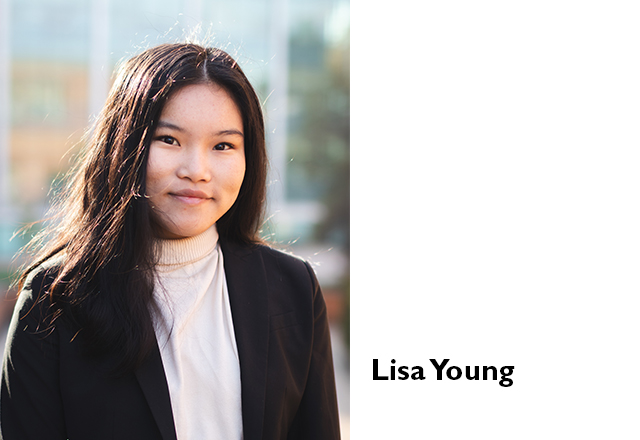
Lisa Young
School of Medicine Graduate Student
Lisa Young serves the Johns Hopkins community by promoting educational accessibility, and by providing opportunities for young people with disabilities to participate in adaptive sports.
While the second-year medical student is busy with her studies, she makes time to help lead Equal Access in Science and Medicine, a Johns Hopkins committee which serves graduate students with disabilities. With a team, she helped secure grant funding for and coordinate a semiannual lecture series featuring scientists and clinicians with disabilities, chronic illnesses and mental health conditions.
Young’s goal is to empower and unite students to tackle complex issues regarding disability, disclosure and institutional barriers to access. Her efforts include collaborations with the Kennedy Krieger Institute, the Johns Hopkins Disability Health Research Center and Student Disability Services at The Johns Hopkins University.
Her advocacy extends further through sports. Young is a student leader for the Hopkins Adaptive Sports Interest Group (ASIG), which works closely with the Kennedy Krieger High School and Whitetail Resort to support adaptive sports programs for children and teens with disabilities, and connects them with medical students. As a leader of ASIG, Young has partnered closely with residents, fellows and faculty members in the Johns Hopkins physical medicine and rehabilitation department to connect as many health care professionals as possible to adolescents with disabilities.
Young believes any child can be an athlete with the right accommodations and tools. By investing in children, Young has exemplified selflessness in bringing a generation together through sports. She displays a service-leader mentality through her many acts of advocacy and volunteerism by helping people inside and beyond the Johns Hopkins community.

